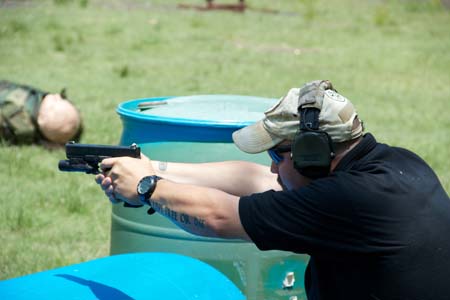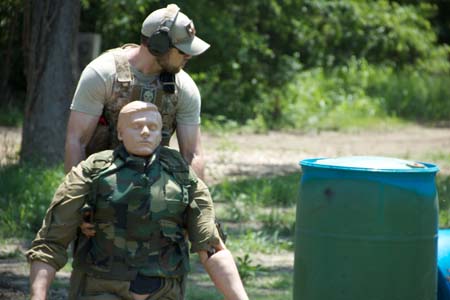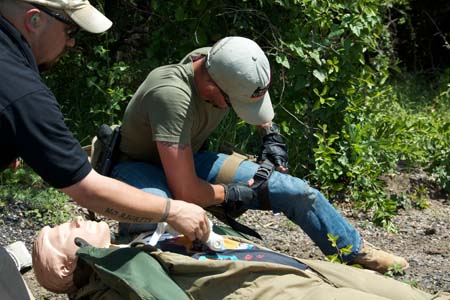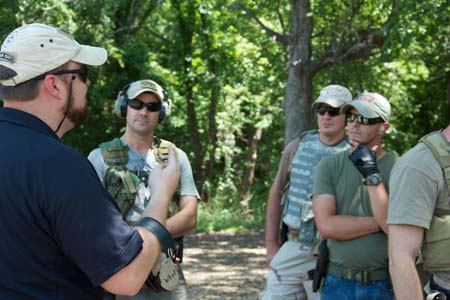- Comms
- Law
- Medic
- News
- Opinion
- Threat Watch
- Training
- Warrior Tools
- Accessories
- Ammo
- Body Armor
- Books
- Clothing
- Commo
- Gear
- Handguns
- Holsters
- Knives
- Long Guns
- ACC
- Accuracy International
- Barrett
- Benelli
- Beretta
- Blaser
- Bushmaster
- Custom
- CZ
- Desert Tactical Arms
- DPMS
- FN
- Forums
- HK
- IWI
- Kel-Tec Long Guns
- LaRue
- LWRC
- McMillan
- Mosin Nagant
- Mossberg
- Para
- Remington
- Rock River Arms
- Ruger Long Guns
- Sabre Defense
- Sako
- SIG Sauer
- SKS
- Smith & Wesson Long Guns
- Springfield
- Styer
- Weatherby
- Wilson Combat
- Winchester
- Magazines
- Maintenance
- Navigation
- Optics
- Sights
- Tech
- Warriors
Archive for category Medic
British Female Medic Awarded Military Cross
From: American Ranger
Courageous Army medic awarded Military Cross
By Brian Brady, Whitehall Editor
Sunday, 27 March 2011
An Army medic who put herself in “mortal danger” to treat a wounded Afghan soldier under heavy Taliban fire has been awarded the Military Cross, Britain’s third-highest medal for gallantry.
Lance Corporal Kylie Watson, who gave the casualty medical care in exposed open ground for 20 minutes before getting him to a helicopter, is one of more than 130 servicemen and women commended for bravery in the latest military honours list.
The medic, who also made a 100-yard dash through enemy fire to help another Afghan soldier, was praised for her “immense courage [and] willingness to put her own life at risk”.
L/Cpl Watson, of the Royal Army Medical Corps, stemmed the soldier’s bleeding despite being hampered by other Afghan troops, and got the injured man to a helicopter landing site 200 yards away.
Dust in Afghanistan, Iraq may be Harmful
From: USA Today
Scientists say Pentagon misleads on dust study.
WASHINGTON — The Pentagon is falsely claiming its research shows that airborne dust in Iraq and Afghanistan poses no health risk to U.S. troops, say three scientists whose review of that research found it riddled with mistakes.
Military officials then falsely said the review of their research backed their conclusion that the dust in the two war zones is no different from that in California, scientists Philip Hopke, Mark Utell and Anthony Wexler say.
U.S. Joint Forces Military Medicine
Video from IDGA
RADM Mike Mittelman, MC, SHCE, Command Surgeon for U.S. Joint Forces Command, discusses joint forces military medicine at IDGA’s 12th Battlefield Healthcare event. He details military medical efforts from a joint U.S. forces and NATO perspective. He also talks about challenges and priorities faced as command surgeon at USJFCOM.
Medics Learn War Dog 101
From Military Times:
“Canines differ in anatomy and physiology,†the guidelines say. “Knowledge of key differences will assist the physician in resuscitating and stabilizing … prior to transport to veterinary care.â€
Triple Canopy – Quiet Professionals Wanted
From: Triple Canopy
Careers
Quiet Professionals Wanted
We are seeking top performers who appreciate the opportunities that come with being a part of a growing international, security solutions leader, particularly those who operate best where expectations are high. We look for more than superior credentials; we need innovative team players who thrive in a fast-paced, global operations environment.
We employ corporate staff as well as operational full-time and intermittent employees throughout the world. Most positions require experience in one or more of the following areas: Read the rest of this entry »
The Invisible Enemy
Posted by Jack Sinclair in Medic, News, Threat Watch on 9/Jun/2011 20:23
“Behind the scenes, the spread of a pathogen that targets wounded GIs has triggered broad reforms in both combat medical care and the Pentagon’s networks for tracking bacterial threats within the ranks.
Interviews with current and former military physicians, recent articles in medical journals, and internal reports reveal that the Department of Defense has been waging a secret war within the larger mission in Iraq and Afghanistan – a war against antibiotic-resistant pathogens.”
NDM-1 in a U.S. Military Hospital in Afghanistan
Posted by Jack Sinclair in Medic, News, Threat Watch on 9/Jun/2011 20:18
By Maryn McKenna
… Deep in the back of the weekly bulletin of the Centers for Disease Control and Prevention, there is a note that NDM-1, the “Indian supergene,†has been isolated from a patient in a U.S. military field hospital in Bagram, Afghanistan.
It’s been a few months since NDM-1 was in the news, so let’s recap. The acronym (for “New Delhi metallo-beta-lactamase 1″) indicates an enzyme that allows common gut bacteria to denature almost all the drugs that can be used against them, leaving two or three that are inefficient or toxic.
… You don’t even have to imagine what comes next, because we already know: Multidrug-resistant Acinetobacter baumanii has been spreading through the military hospital system for almost a decade, with grave consequences for injured military personnel.
Acintobacter slipped by the military medical system before they noticed, and became established in military hospitals before infection-control efforts were prepared to counter it.
Rescue Tools
Posted by Gary in Accessories, Medic, Warrior Tools on 9/Jun/2011 17:40
Shot in the Face
Posted by Gary in Gear, Medic, Warrior Tools, Warriors on 8/Jun/2011 07:01
From: Oakley News
Sergeant Tim Arthur is at the gun turret of an MRAP (an armored anti-mine vehicle), scanning the bleak Iraqi horizon for threats as the fuel delivery convoy rolls on toward its destination. It’s November, and a shroud of fog has settled over the area. It’s a fog so dense, so opaque that Arthur never even sees the sniper who shoots him in the face.
Sunglasses Saves Eye
Posted by Gary in Gear, Medic, Warrior Tools on 1/Jun/2011 16:52
From: Oakley News
The grinding roar of chainsaw motors and the familiar scent of burning gasoline filled the air in Pleasant Grove, AL that Friday morning. Just a week after a mile-wide tornado decimated this quiet Birmingham suburb, sounds and smells like these heralded a new day—resounding signals that the arduous tasks of picking themselves up and returning to normalcy were finally underway.
ITS Tactical Hosts Lone Star Medics’ Medicine X Class
Lone Star Medics put on its 2-Day Medicine X Class at Quail Creek Shooting Range this weekend. This “medicine under fire” class features classroom instruction and scenario based live-fire drills where students have the opportunity to put what they have learned into action under the stress of simulated real-world situations. The event was hosted by ITS Tactical and co-sponsored by Lone Star Amory and XS Sights.
Above, instructor Andrew Brady demonstrates one possible solution to a problem presented class participants. Your buddy “Randy” , seen prostrate in the background, has been injured during a violent robbery. What do you do?
After neutralizing the immediate threats, ITS Tactical’s Bryan Black drags Randy off the “X” and behind cover.
A momentary lapse in tactical awareness earns this student a penalty, a gunshot wound to his left calf. Now he has two patients, Randy and himself.
Books and videos are great tools for learning but nothing can replace hands on adrenalin-packed live training, And just as important as the getting-your-hands-dirty part is the critical eye of an experienced “been there” instructor and the after action debrief.
For more information on classes contact Caleb Causey at Lone Star Medics.
See more photos and info at ITStactical.com.
Hyper-Realistic Warfighter Training
A marine is on the ground with a badly wounded squad member. He is yelling for a corpsman when another marine runs up and yells “This IS the corpsman”.
This video is just over 12 and one half minutes long.
Lone Star Medics
From: Lone Star Medics
Lone Star Medics: A Field and Tactical Medicine Training Company
 Our goal is to teach individuals how to manage life threatening injuries until professional help is available. Lone Star Medics will teach you the tools to combat that feeling of helplessness when a loved one or friend is severely injured.
Our goal is to teach individuals how to manage life threatening injuries until professional help is available. Lone Star Medics will teach you the tools to combat that feeling of helplessness when a loved one or friend is severely injured.
We teach individuals how to save someone’s life during those extremely critical moments while EMS (Emergency Medical Services) is responding to your emergency.
While most urban fire departments and ambulance services try to respond to an emergency in less than 10 minutes; during that time an injured person can become very critically unstable. That’s where your training with Lone Star Medics becomes a reality. The skills that you have learned will save the life of a loved one, a co-worker, yourself, or even a total stranger. As Caleb learned in the Army; “you train as you fight, and you fight as you’ve trained.â€Â With that mentality, Lone Star Medics has created courses on first aid and emergency medicine for the non-professional rescuer in mind. These courses are not designed to teach someone how to be the medic but rather how to perform aggressive first aid to those that may not live before professional rescuers arrive.
Navy Wants Doc-Bots, Robo-Ambulances
From: Danger Room
 The Office of Naval Research recently announced that it’s looking to build a prototype medical robot it calls the Autonomous Critical Care System. ACCS’ first job would be monitoring critical patients’ vital signs. Eventually, though, the Navy wants its bot to provide fluid, drugs, anaesthesia, suction, oxygen and help regulate a patient’s temperature. more
The Office of Naval Research recently announced that it’s looking to build a prototype medical robot it calls the Autonomous Critical Care System. ACCS’ first job would be monitoring critical patients’ vital signs. Eventually, though, the Navy wants its bot to provide fluid, drugs, anaesthesia, suction, oxygen and help regulate a patient’s temperature. more
Right:Â U.S. Air Force Pararescuemen provide medical treatment to a simulated survivor during military operations in urban terrain training in exercise Angel Thunder in Playas, N.M., on July 13, 2007. Angel Thunder is a combat search and rescue exercise designed to provide realistic training to test response capabilities and examine the integration of all Air Force assets in mission planning procedures and mission execution. These pararescuemen are attached to the 58th Rescue Squadron out of Nellis Air Force Base, Nev. DoD photo by Senior Airman Christina D. Ponte, U.S. Air Force.









